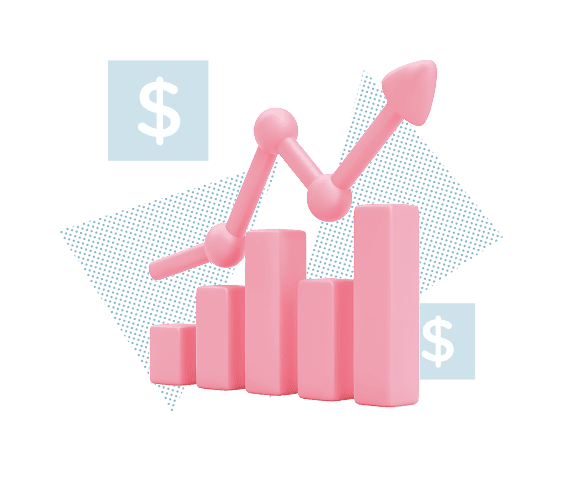Top 6 Renewable Energy Stocks
Updated: 11 Dec 2025
Looking to align your investments with a greener future? Renewable energy stocks could be a meaningful way to support environmental sustainability while potentially growing your wealth.
As the clean energy sector continues to drive innovation and reshape global industries, renewable energy is increasingly seen as a compelling long-term investment opportunity. This growth is fueled by rapid technological advancements and rising global demand for cleaner, more sustainable alternatives.
Additionally, investing in renewable energy supports the global shift toward sustainability and could offer the potential for attractive returns in a rapidly evolving market.
SingSaver Exclusive Offer
Compare top brokerages on SingSaver, apply in minutes, and earn rewards, including up to S$500 cash, premium products like Apple AirPods 4 or Dyson devices worth around S$600, or exclusive provider gifts worth over S$13,000. Valid till 1 March 2026. T&Cs apply.
Renewable energy investments
These renewable energy companies are the top players in generating, storing, or delivering renewable energy. While recent performance can offer some insights, it’s important to remember that strong returns today don’t always guarantee future success. This is because stock performance can shift just as quickly. Remember, investing in single stocks always carries risk, so it's wise to proceed carefully.
» Want to choose your investments? See our list of the best robo advisors in Singapore.
Best renewable energy stocks in 2025
|
Ticker |
Company |
Performance (Year) |
|
5CT |
Ecowise Holdings Ltd. |
151.61% |
|
CWEN |
Clearway Energy |
33.53% |
|
ORA |
Ormat Technologies |
18.59% |
|
5E2 |
Seatrium Ltd. |
16.23% |
|
NEE |
NextEra Energy |
9.66% |
|
BEP |
Brookfield Renewable Partners |
6.05% |
The annual performance figures referenced are based on data from MarketWatch as of April 16, 2025. Please know that these figures are subject to change and may fluctuate over time.
» Want to know more about energy stocks? Compare the best brokers for stock trading in Singapore.
Explore investment opportunities in Singapore
Compare stock brokerage accounts and learn strategies to optimise your returns in the local market.
Why should you consider investing in renewable energy stocks?
The world is undergoing a major transition toward cleaner, more sustainable energy sources. This global shift is not just a response to climate change. It’s reshaping industries, influencing policy decisions, and opening up new avenues for economic growth. As countries are challenged to reduce their carbon emissions and meet international climate targets, renewable energy is emerging as a key driver toward this change.
» View our list: Energy stocks to add to your watchlist
Governments worldwide, including Singapore, are actively driving the transition to green energy. Singapore’s Green Plan, a comprehensive, whole-of-nation initiative, shows the country’s commitment to sustainable development. As one of the most solar-dense cities globally, Singapore presents promising opportunities for investors. Supporting companies involved in solar energy production and infrastructure could offer attractive long-term financial benefits.
Beyond the economic appeal, investing in renewable energy also aligns with ethical and environmental values. It could help reduce global dependence on fossil fuels and support a cleaner planet for future generations.
» Learn more: Check out other ethical investments for investors
⚡SingSaver x Plus500 Flash Deal⚡
Get upsized rewards like S$350 cash, S$370 vouchers or 22,000 Max Miles by HeyMax when you open a Plus500 account through SingSaver, make a min. deposit of S$1,500, and execute at least 3 trades within 14 days. Valid till 1 March 2026. T&Cs apply.
💎 Exclusive Deposit Bonuses from Plus500
Get S$13,000 plus 8,000 Trader Points when you deposit min. S$75,000 with bonus code DIAMOND, S$688 plus 408 Trader Points with min. S$1,000 using SingSaver688, or S$288 plus 128 Trader Points with min. S$500 using SingSaver500. Valid till 1 March 2026. T&Cs apply.
Consider ESG funds instead
If you're interested in supporting clean energy but don’t have the time or expertise to research individual companies, ESG funds offer a simpler and more diversified way to invest in sustainability. ESG stands for Environmental, Social, and Governance — three key criteria used to assess a company’s ethical impact and sustainability practices. ESG funds focus on investing in companies that align with these values.
Essentially, ESG funds are mutual funds or exchange-traded funds (ETFs) that use ESG criteria as part of their investment strategy. These funds may be invested in companies that reduce carbon emissions, promote fair labour practices, or maintain strong corporate governance. The fund managers evaluate companies based on ESG performance alongside traditional financial metrics.
That said, some investors remain cautious about ESG funds due to concerns about transparency. In particular, there have been growing debates around "greenwashing", where funds may appear more sustainable than they truly are. This highlights the importance of reviewing fund disclosures and understanding how ESG criteria are applied before investing. It’s important to review fund disclosures before investing in any type of mutual fund.
» Discover alternative energy fund: Explore our top-rated ESG funds
Frequently asked questions about renewable energy stocks
It’s important to note that the best energy stocks to buy are the ones that work best for your individual portfolio. Also, while strong performance can be attractive, it's not the only factor to weigh when investing. Choosing the top-performing energy stock might seem like a smart move, but it's essential to look at the bigger picture, especially your current portfolio mix. For instance, if you're already holding several solar energy stocks, adding another one may reduce diversification rather than strengthen your position. A portfolio concentrated in one sector becomes more vulnerable to industry-specific challenges, such as supply shortages for solar panel materials.
It's also worth evaluating the types of assets you already hold. If your portfolio leans heavily on individual stocks, you might want to reduce risk by adding more diversified investments, such as mutual funds or ETFs. This can provide broader exposure and help offset potential volatility.
Lastly, always do your homework before investing in any stock, whether it's renewable energy stock or other mutual funds. Look into the company's history, revenue performance, market trends, and ESG ratings to make informed decisions that are aligned with your financial goals.
The cost of clean energy stocks varies from company to company. Some may be priced higher, while others might be more affordable. This will depend on their size, performance, and industry position.
If the value of your green energy stocks falls, you typically won’t owe any money. The most you can lose is the amount you originally invested. However, this changes if you're using advanced or riskier trading strategies.
The author does not hold positions in the investments provided at the time of publication.


